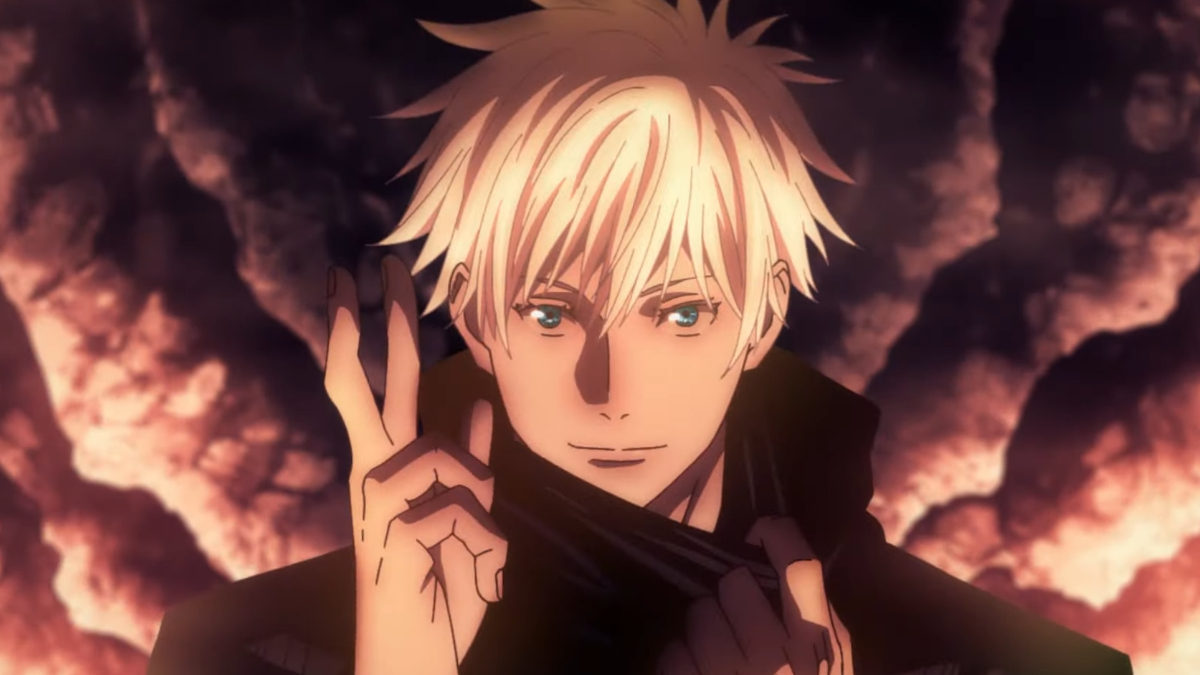

The Impact Of Gojo's "Nah, I'd Win" Meme In Jujutsu Kaisen
Jujutsu Kaisen has taken the anime world by storm, captivating audiences with its stunning visuals, thrilling battles, and captivating storytelling. However, alongside its acclaim, the series has birthed numerous memes, with one of the most iconic being Satoru Gojo's famous line: “Nah, I’d win.” This phrase has transcended its original context, becoming a cultural touchstone for fans and sparking a plethora of creative interpretations across social media platforms.
As the series unfolds, Gojo's confidence in his abilities is challenged, particularly when discussing the formidable Sukuna, an ancient sorcerer known for his overwhelming power. This dynamic sets the stage for a memorable showdown, where Gojo's declaration resonates with fans long after its initial utterance. The meme's evolution reflects the broader trends in anime fandom, where moments of bravado are often recontextualized into humorous formats.
In examining the significance of Gojo's line, it's clear that memes like this not only enhance the viewing experience but also foster a sense of community among fans. They allow for creative expression and engagement, transforming serious narratives into playful discussions that can resonate with diverse audiences. As we delve deeper into the origins and implications of this meme, we can better understand its role in the cultural phenomenon that is Jujutsu Kaisen.
Jujutsu Kaisen: Gojo’s Nah I’d Win Explained

The meme of Gojo proclaiming "Nah, I’d win" traces back to the early episodes of Jujutsu Kaisen. Initially, this line did not garner the attention it has today. In a pivotal moment, Gojo reveals the terrifying strength of Sukuna, a sorcerer from Japan's Heian period. As Sukuna threatens Gojo through Yuji Itadori, Gojo confidently asserts his status as the strongest, prompting a concerned Yuji to question whether Gojo could defeat Sukuna at full power.
As the storyline progresses, Gojo's seemingly casual assertion takes on greater weight. When the long-awaited battle between him and Sukuna arrives, the tension is palpable. The chapter just before their confrontation ends with a striking image of Gojo and the bold statement, “Nah, I’d win.” This moment resonated deeply with fans, especially after Viz Media's English adaptation altered Gojo's original response, leading to a resurgence of interest in the phrase.
The ironic twist following the climactic battle has further fueled the meme's popularity, inspiring countless variations across the internet. Fans have embraced this line, creating humorous adaptations that often highlight the contrast between Gojo's bravado and the actual events of the story. Such variations not only showcase creativity but also reflect a shared understanding among fans of the series.
The meme's impact extends beyond mere humor; it has become a means for fans to comment on their favorite characters, often juxtaposing Gojo with others known for their defeats, like Jogo. This playful banter highlights both the strength of Gojo's character and the communal aspects of fandom. Ultimately, the "Nah, I'd win" meme serves as a reminder of how Jujutsu Kaisen has not only entertained but also engaged its audience in meaningful ways.
As we explore the phenomenon of memes in anime, it’s essential to recognize their role in shaping community discourse and enhancing viewer engagement. In this digital age, a simple line can spark conversations, inspire art, and even create new narratives among fans, proving that the influence of Jujutsu Kaisen extends far beyond its episodes.
Jujutsu Kaisen is streaming now on Crunchyroll.
Exploring The Iconic Gundam Franchise: A Complete Guide To Its Series
Unlock Exciting Rewards In The Monopoly GO Fortune Footrace Event!
Mastering The Art Of Farming Heat Plasma Battery In The First Descendant
